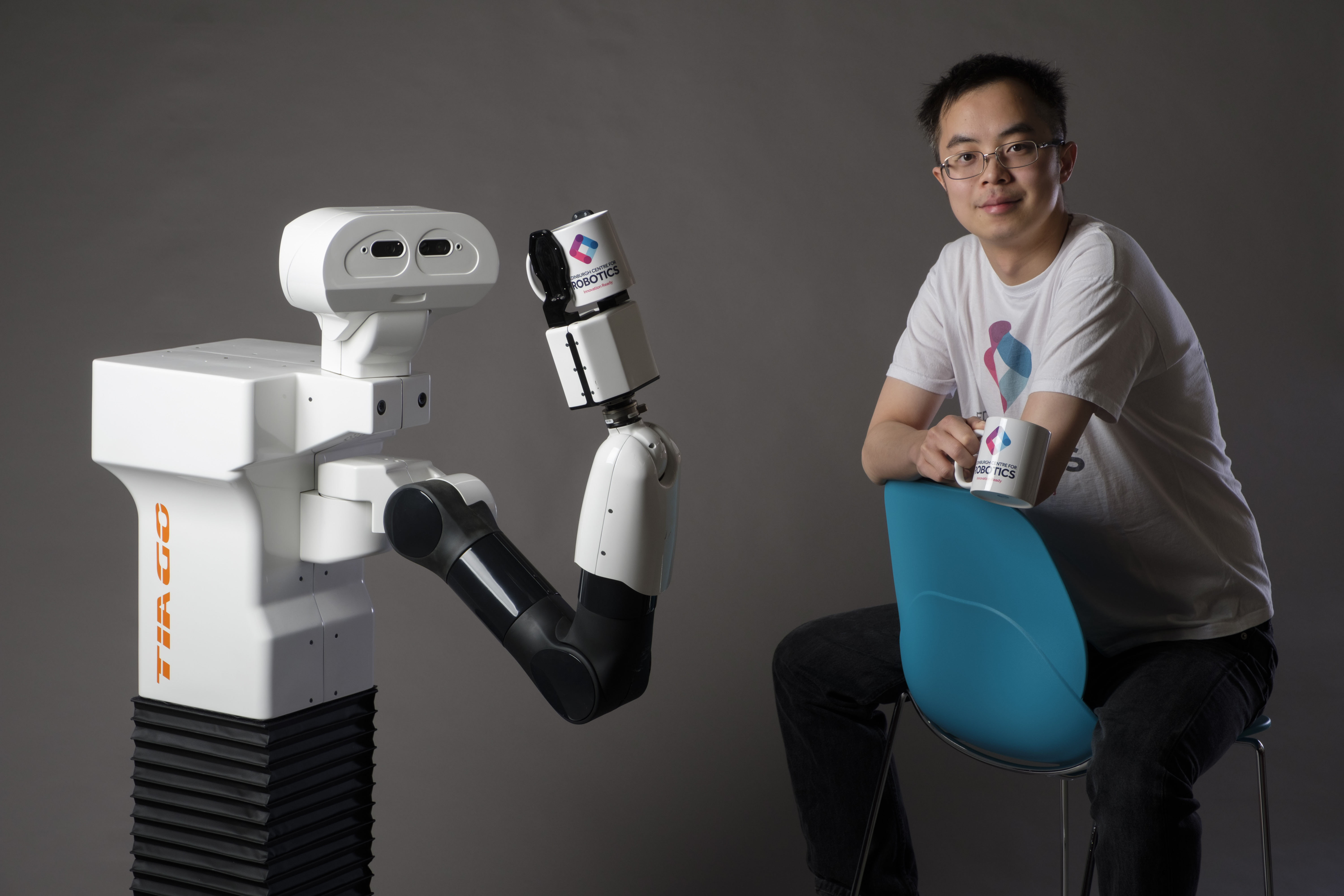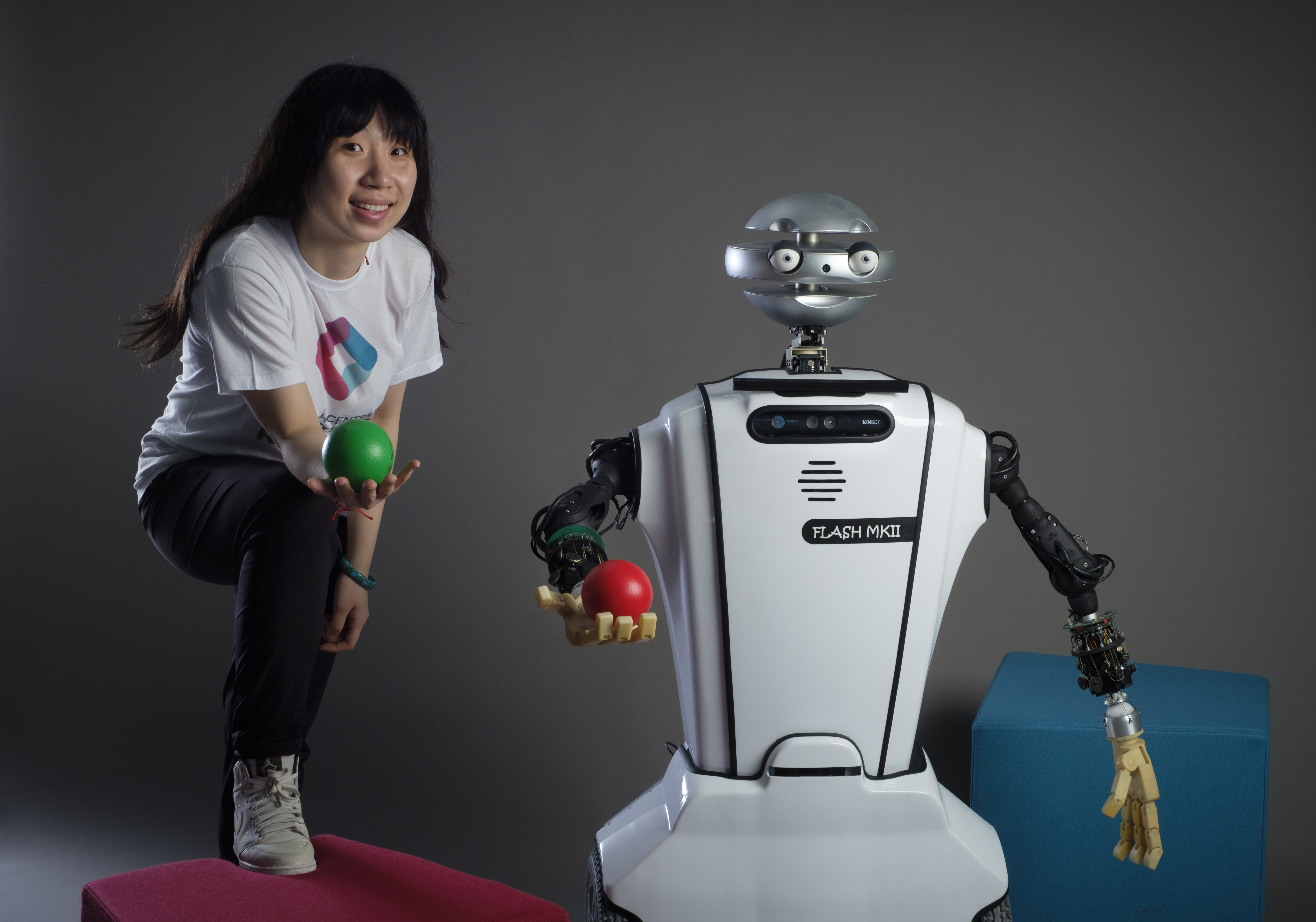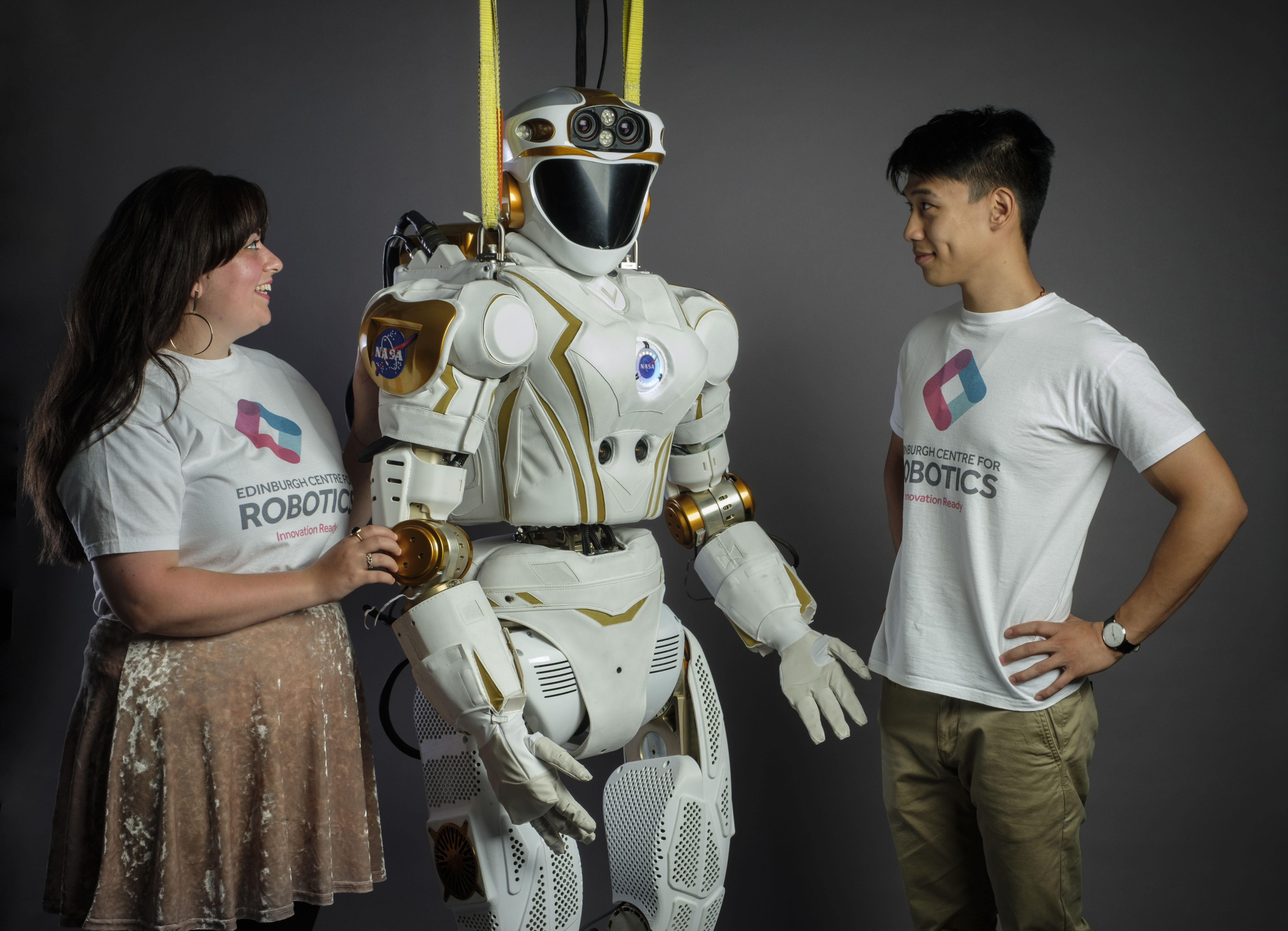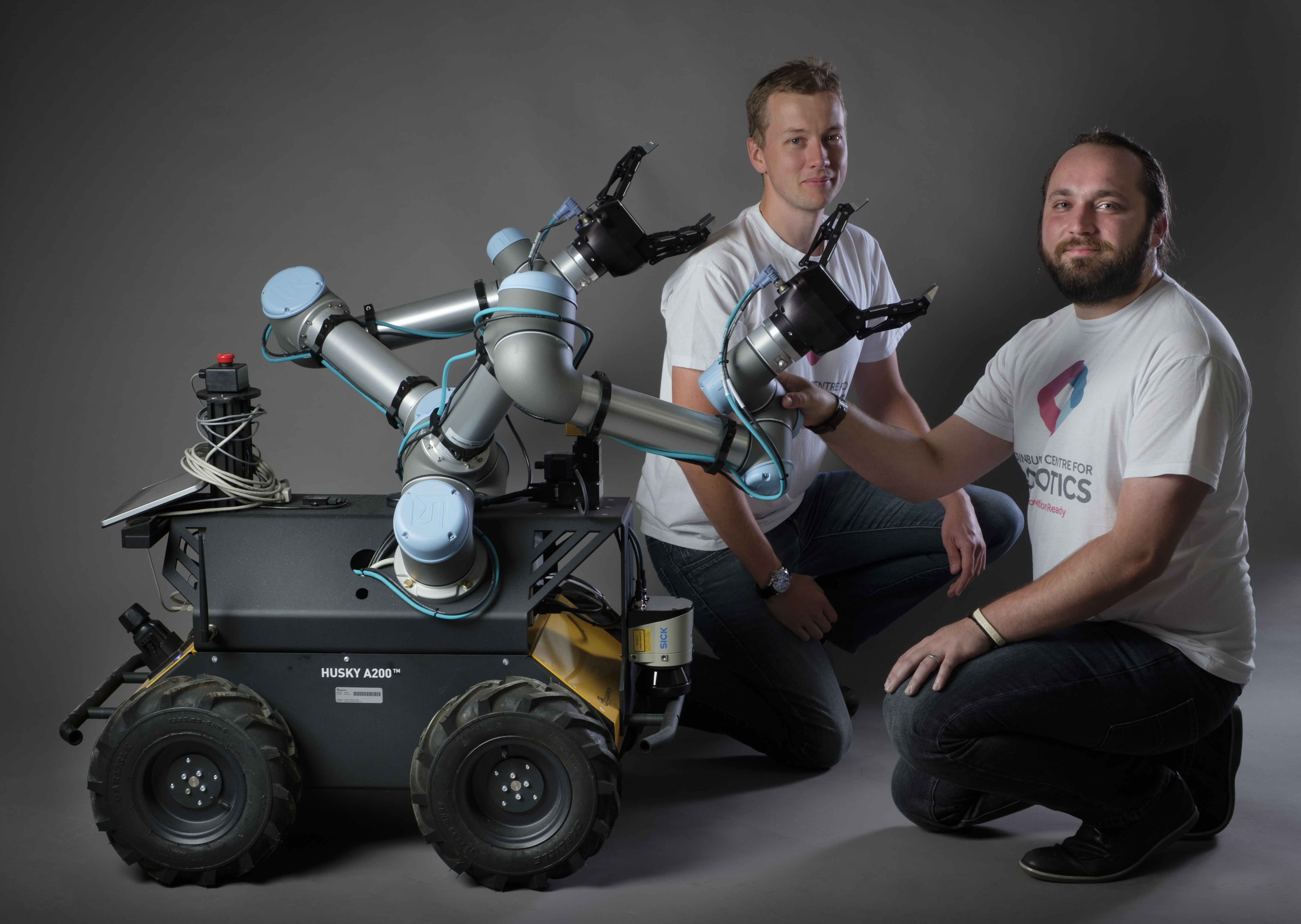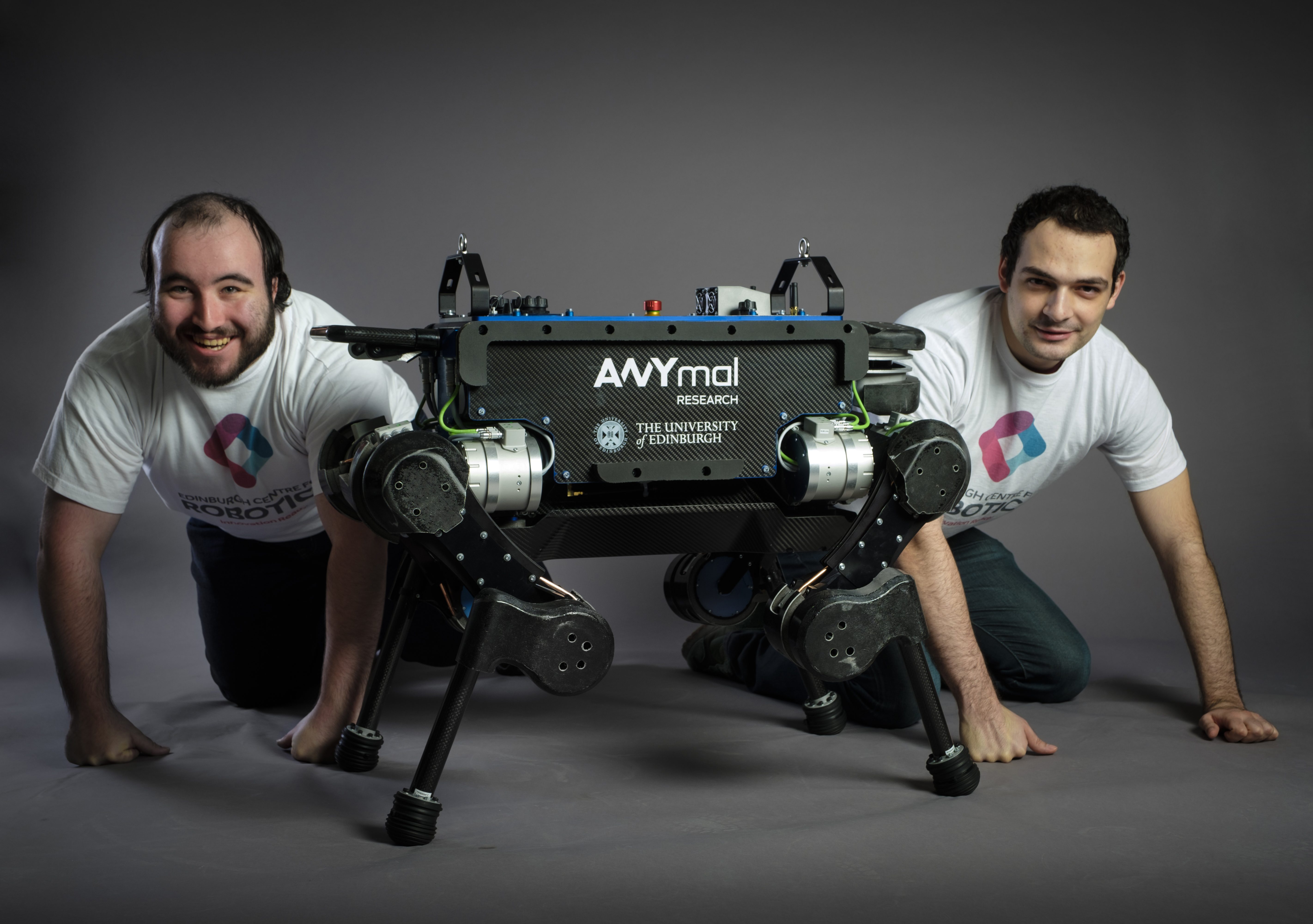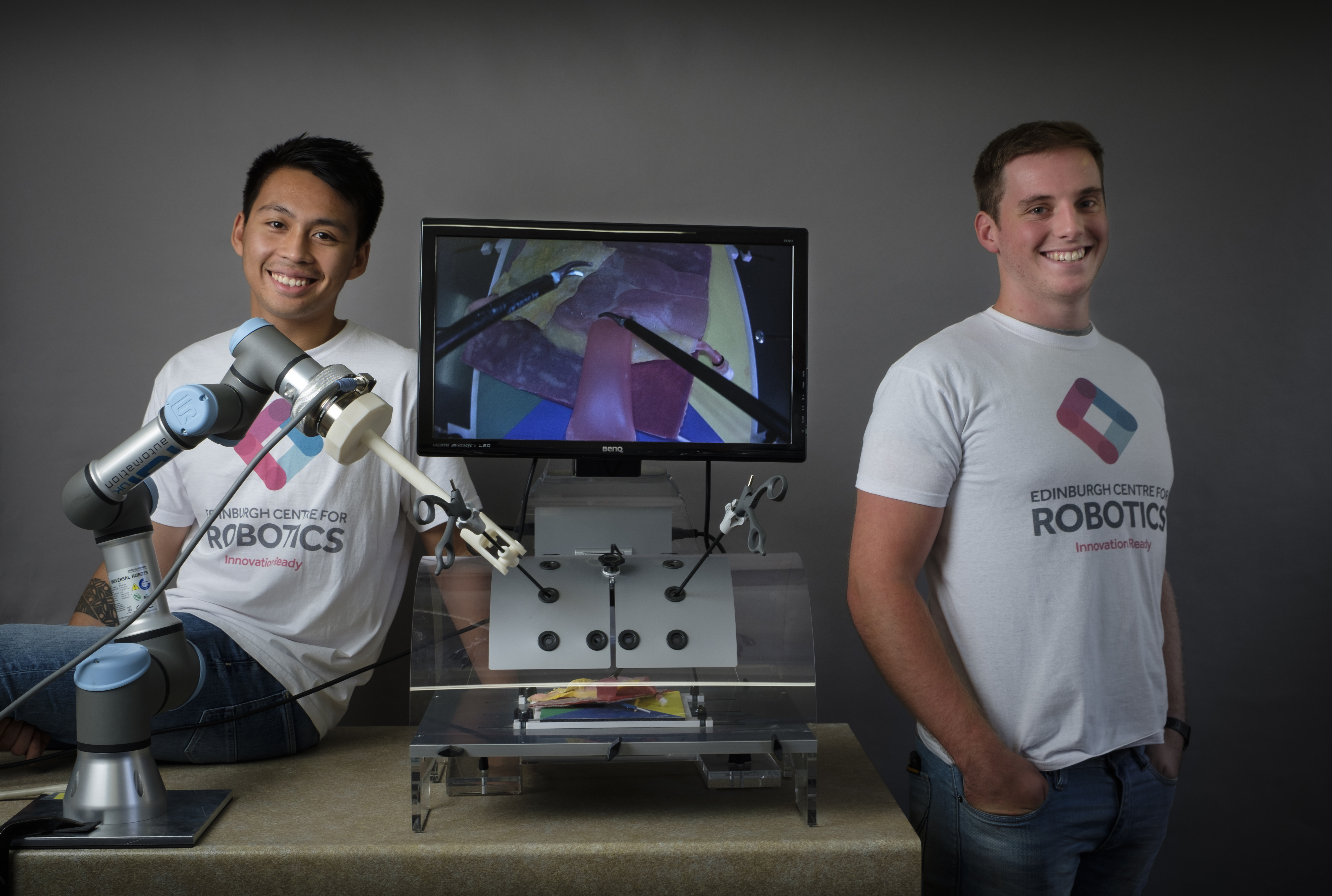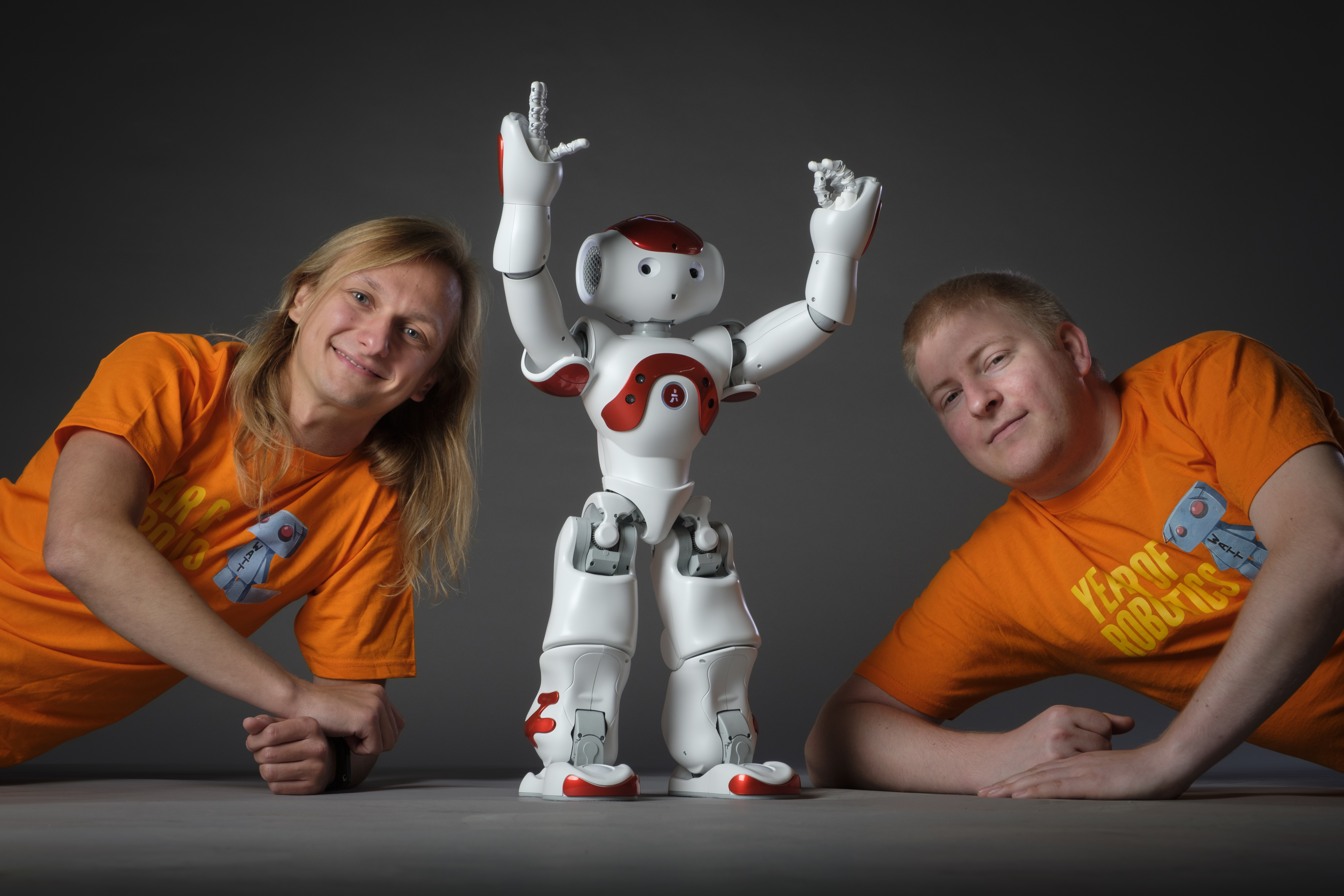UKRI AI Centre for Doctoral Training in Dependable and Deployable AI for Robotics (CDT-D2AIR)
Programme Overview
As cutting-edge research in robotics and artificial intelligence (AI) reaches the stage where widespread deployment is feasible, issues around safety, dependability and trustworthiness become ever more critical. These emerging applications need robotics to be certifiable, reliable and capable of interacting safely with the environment and users. There is a need for research and novel solutions to extend the applicability, scalability and usability of verification and certification methods for deploying robotic and autonomous systems. While AI methods are finding increasing adoption within robotics, much of this technology was not originally designed with safety and other important human-centred requirements in mind. Making AI truly applicable to, and deployable in, robotic solutions will require advanced sets of skills and new ways of thinking.
The UKRI AI Centre for Doctoral Training in Dependable and Deployable AI for Robotics (CDT-D2AIR, pronounced “dare”) is a joint 4-year PhD training programme offered by Heriot-Watt University and the University of Edinburgh. CDT-D2AIR will train students in the latest methods in AI, verification, design, and robotics, along with practical skills to ensure that robotic systems can be safely developed and deployed. The training programme combines state-of-the-art robotics, machine learning, optimisation and software engineering with verification and testing. This training programme will be conducted within the context of emerging legal standards and regulations, sustainability, ethics, Responsible Research and Innovation (RRI), and Equality, Diversity, and Inclusion (EDI), all through engaging learning activities, to create a new generation of graduates working on dependable and deployable AI for robotics.
PhD students will specialise in topics related to the four research themes of CDT-D2AIR, gaining a deep understanding of technical aspects and theoretical foundations:
- Trustworthy and Rigorous AI for Robotics,
- Robust Robot Design,
- Dependable AI for Human-Robot Interaction (HRI),
- AI for Deployable Robot Systems and Field Systems.
CDT-D2AIR will be part of the Edinburgh Centre for Robotics (ECR), which includes Heriot-Watt University through the departments of Computer Science, Engineering, and Psychology; and the University of Edinburgh with the schools of Informatics and Engineering. CDT-D2AIR encompasses the full spectrum of connected and overlapping AI and robotics disciplines, applied to a diverse range of sectors, including health and well-being, assisted living, agriculture, manufacturing, and energy. The ECR is home to world-leading research, sourced by its 70+ academic staff.
Training Programme
The CDT-D2AIR training programme aims to strengthen the synergies between Computer Science and Engineering, with a training method that adopts a systems approach. Through the taught courses and programme activities, students will build on the connections between these two major sub-disciplines of robotics at all stages of the programme. CDT-D2AIR will teach the students to understand the importance of these two areas, within the context of producing world-class research on dependable and deployable robotic systems.
Our bespoke training programme (called #CREDIT) also aims to extend our students' academic experience through engagement with industry (Connect), novel research in dependability and deployability (Research), real-world application areas (Expand), deployment on robots (Deploy), consideration of industrial impact (Impact), and innovative training methods (Train). A particular feature of #CREDIT is the mixing of students from different years and across laboratories, which encourages cross-disciplinary idea generation. Students will also have an opportunity to interact with industry partners, giving them practical skills, combined with real-world experience that cannot easily be taught through traditional methods. #CREDIT comprises cohort-wide and elective activities including guest speakers, seminars, skills sessions, lab visits and internships, retreats, plus access to opportunities like seed funding and commercialisation training. The training programme enables students to customise their development and learning to achieve specific training outcomes aligned with their academic interests, supplemented with non-technical skills such as an understanding of technology translation, creativity, and entrepreneurial processes.
Year 1
The CDT-D2AIR programme is designed to balance the need for core training in a set of topics that are central to the concerns of the CDT's research themes, together with the need for maximal flexibility reflecting the diverse disciplinary interests of the investigators represented within the supervisory pool. To achieve this, students will take two mandatory core courses, a synthesis course, and a project proposal course in Year 1. These courses will be designed and delivered by faculty from both Heriot-Watt University and the University of Edinburgh to cover the four main research themes of CDT-D2AIR.
Year 1 core mandatory courses: All students will participate in two core courses covering four key topics: 1) Requirements and Specifications, 2) Verification and Validation of Autonomous Systems, 3) Concept Development and Responsible Research and Innovation (RRI), and 4) Integration and Testing Methodologies for Autonomous Systems. These courses will ensure that students are trained in the latest methods of AI, verification, design, and robotics, while also having the practical skills to ensure that the systems can be safely developed and deployed. Innovative teaching approaches will facilitate deep engagement and cohesion of the cohort through immersive modules. These two courses, Dependable and Deployable AI for Robotics 1 and 2, will be delivered in Semester 1 (September - December) and Semester 2 (January – April), respectively, with each course worth 30 credits.
Year 1 synthesis course: Students will customise their learning by preparing an in-depth literature review that investigates a research area in greater depth. A key aspect of this course is that students will observe/audit topics in some of the existing MSc (SCQF Level 11) courses at Heriot-Watt University and the University of Edinburgh from an approved list of CDT-D2AIR courses/topics. To demonstrate their learning, students will submit a written report exploring how the topics they have covered in their literature review, core mandatory courses, and observed/audited courses relate to their proposed PhD research topic. Students will also give a presentation to their cohort, supervisors, and external research partners in the form of a short Masterclass. The report and Masterclass presentation will be evaluated on a pass/fail basis. These activities will be assessed and reported in the course Synthesis of Dependable and Deployable AI for Robotics, delivered across Semester 1 (September – December) and Semester 2 (January – April), worth 60 credits.
Year 1 individual project: Students will work with their supervisors to define their individual research project in the summer of Year 1. This work may involve a stand-alone exploration (e.g., conducted with an industrial partner to understand a problem area) to serve as the basis for the formal PhD topic. This preliminary project work and PhD project description will be evaluated on a pass/fail basis through a written research report submitted as part of the progression material required at the end of Year 1 and reported in the course Dependable and Deployable AI for Robotics Year 1 Report, worth 60 credits.
Year 2
In addition to focusing on their PhD research project, students will participate in at least two innovative activities designed to ensure they experience direct exposure to industry and a wide variety of stakeholders. These activities include industry-sponsored development sprints, hackathons, industry internships, international research lab placements, bootcamps, outreach and public engagement activities, and commercialisation training. The full list of these activities will be monitored and updated throughout the programme.
Years 3 and 4
These years will be principally focused on the students' lab-based PhD project work. In addition, students will have the opportunity to continue to participate in the innovative activities from Year 2. For instance, students will be able to: bid for seed funding for start-up activities; mentor and train new cohorts for competition participation; develop new outreach activities based on their own research; and participate in an invention disclosure process. CDT-D2AIR will also offer training support relevant to PhD completion (e.g., writing workshops, presentation skills, career advice).
Throughout their PhD programme, all CDT-D2AIR students will also be encouraged to attend transferable skills training sessions, delivered by both Heriot-Watt University and the University of Edinburgh. These courses are designed to help postgraduate students acquire and develop skills necessary for their research work and future careers. More details of courses at Heriot-Watt University can be found at the Research Futures Academy. A full list of courses at the University of Edinburgh is available through the Institute for Academic Development.
Cohort Approach
A distinguishing characteristic of CDT-D2AIR is the cohort structure which provides students with a strong mutually-supporting network of other students backed up by a first-class resource of related knowledge, skills, experience, and equipment facilities. Cohort building begins before students start the programme, with new students being encouraged to connect to the CDT via its social media activities. This keeps them appraised of news and developments and involves them in the CDT from the outset. An induction programme is organised at each university so that new students meet key staff and students from other related CDTs. Cohort building continues during the programme with activities such as a team-building weekend at Firbush Outdoor Centre, attendance at our regular Gateway events, opportunities to participate in team challenges, and participation in outreach activities such as the Edinburgh International Science Festival.
The structure of the CDT-D2AIR programme also promotes team-working within the cohort; students undertake multi-disciplinary research and training and are encouraged to share their experience and expertise with others. Teamwork is developed further by providing shared desk space for the students at each university and having an elected student representative from each cohort on the Executive committee. The latter arrangement ensures that the cohort meets regularly to discuss opportunities and challenges, and to receive feedback from the CDT.
Key Features and Benefits
- Fully funded studentship covering tuition fees and maintenance, with funding for travel, small pieces of equipment, and optional international placement.
- Access to the world class infrastructure of the Edinburgh Centre for Robotics, including the Bayes Centre at the University of Edinburgh and the National Robotarium at Heriot-Watt University.
- Supervision by academic experts from both partner institutions resulting in a joint PhD degree from Heriot-Watt University and the University of Edinburgh.
- Excellent training opportunities, including Master's-level courses in Year 1, supplemented by training in commercial awareness, social challenges, and innovation.
- Access to multi-disciplinary projects promoting team-working skills and publishable research.
- Opportunities for an international placement to collaborate with prestigious labs.
- Availability of skills training and enterprise funds to support the development of early commercialisation prototypes.
How to Apply
For details on how to apply to CDT-D2AIR for the September 2024 intake, please see the main CDT-D2AIR application webpage.
Questions?
If you have any questions about CDT-D2AIR, please e-mail one of the CDT-D2AIR Directors, Professor Ron Petrick (r.petrick@hw.ac.uk) or Professor Ram Ramamoorthy (s.ramamoorthy@ed.ac.uk).



